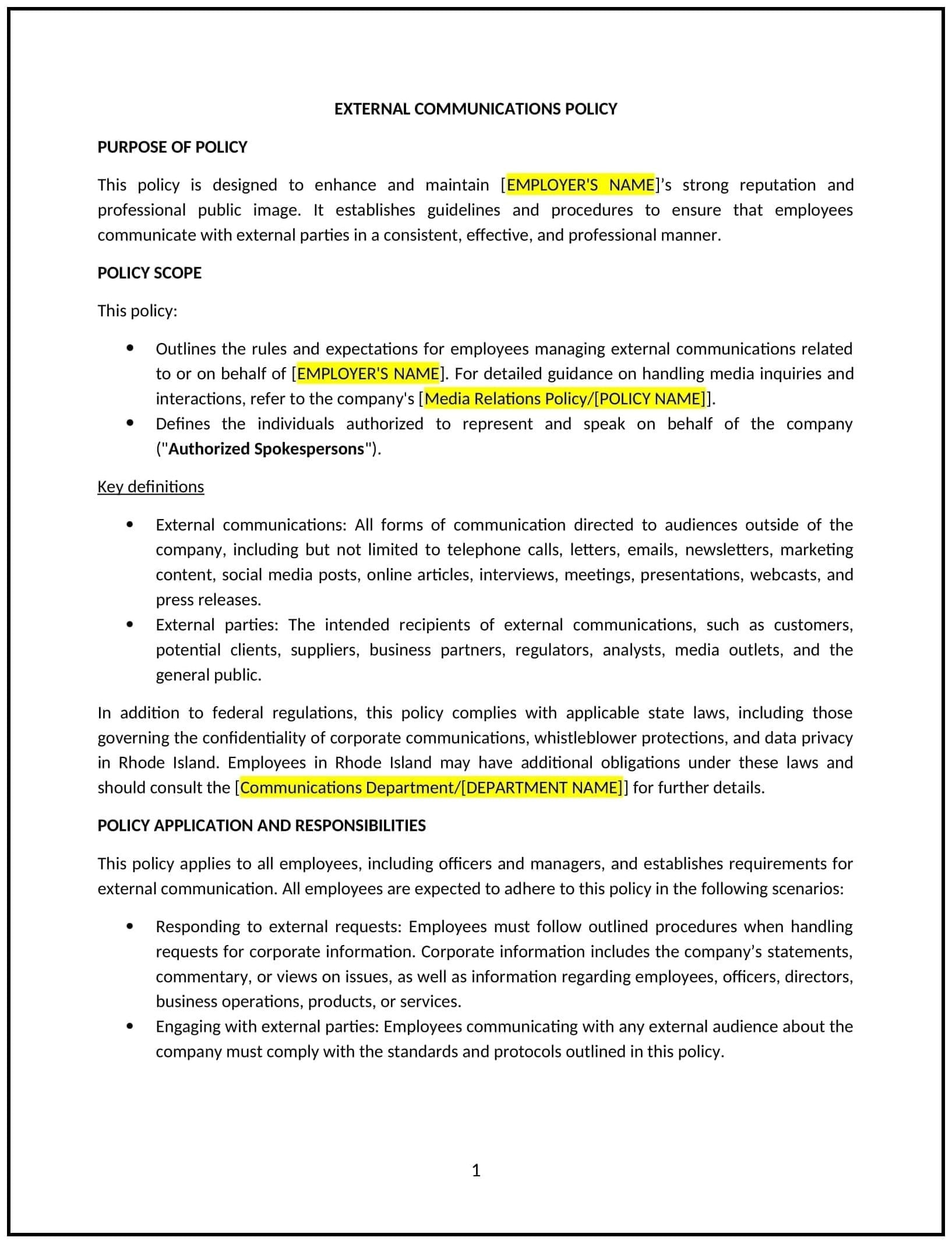External communications policy (Rhode Island): Free template
Got contracts to review? While you're here for policies, let Cobrief make contract review effortless—start your free review now.

Customize this template for free
External communications policy (Rhode Island)
This external communications policy is designed to help Rhode Island businesses manage interactions with the public, media, and other external stakeholders. It outlines guidelines for representing the business, sharing information, and maintaining brand consistency.
By adopting this policy, businesses can protect their reputation, ensure compliance with legal standards, and align with best practices for external communication.
How to use this external communications policy (Rhode Island)
- Define authorized spokespersons: Specify who is allowed to represent the business in external communications.
- Set content guidelines: Outline what information can be shared publicly and how it should be presented.
- Address social media use: Provide rules for employees using social media to discuss the business.
- Train employees: Educate staff on the policy and its importance.
- Review and update: Assess the policy annually to ensure it aligns with evolving business needs and legal standards.
Benefits of using this external communications policy (Rhode Island)
This policy offers several advantages for Rhode Island businesses:
- Protects reputation: Ensures consistent and accurate representation of the business.
- Reduces risks: Minimizes the potential for unauthorized or misleading communications.
- Enhances brand image: Maintains a professional and cohesive public image.
- Ensures compliance: Aligns with legal and regulatory requirements for external communications.
- Aligns with best practices: Supports adherence to communication standards.
Tips for using this external communications policy (Rhode Island)
- Communicate the policy: Share the policy with employees and include it in the employee handbook.
- Provide training: Educate employees on how to represent the business in external communications.
- Monitor compliance: Regularly review external communications to ensure adherence to the policy.
- Address issues promptly: Take corrective action if unauthorized or inappropriate communications occur.
- Update regularly: Assess the policy annually to ensure it aligns with evolving business needs and legal standards.